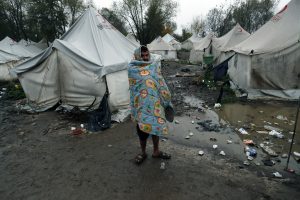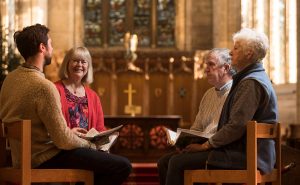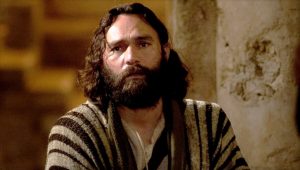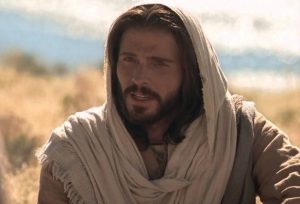 Cyrus the Great was born in the province of Persis, in southwest Iran in 590 BC and died in battle in 530 B.C.
Cyrus the Great was born in the province of Persis, in southwest Iran in 590 BC and died in battle in 530 B.C.
History presents him as a great king whose rule stretched from India to the Mediterranean Sea; he possessed the largest empire in the world at that time.
His name is mentioned over 22 times in the Bible and his tomb in Iran can be visited today.
These biographical details are not the reason why Isaiah speaks of him in today’s 1st reading (Isaiah 45:4-6).
The purpose of Cyrus’ presence in this text is that he was chosen by God to play a special role in God’s plan for his people.
He was, in fact, God’s servant as the words of Isaiah make clear.
What has drawn my attention in this reading is NOT what Cyrus did, but what God did –
what God does over and over again.
The text reads:
“I (the Lord) summon you by name
and bestow on you a title of honor,
though you do not acknowledge me…
I will strengthen you,
though you have not acknowledged me,
so that… people may know there is none besides me.
I am the Lord, and there is no other.”
Cyrus does not know the God of Israel – the Lord – he does not acknowledge him as the only God.
Yet, the Lord blesses him in special ways with a title of honor and with strength.
To me, this is God, OUR God!
All too often, we think that we must do things for God – offer him prayers and sacrifices.
We somehow believe that we must gain his approval and merit his blessings.
Sad to say, we have inversed this wonderful reality that God is the first to shower his gifts on us.
We must come to realize that if we can do anything for God… it is because he, himself, enables us to do so!
 In the beautiful book (and movie) The Color Purple, this is what Alice Walker, the Afro-American lady, has understood when she says with amazing assurance:
In the beautiful book (and movie) The Color Purple, this is what Alice Walker, the Afro-American lady, has understood when she says with amazing assurance:
“People think pleasing God is all God cares about.
But any fool in the world can see he is always trying to please us back.”
And perhaps… to please us FIRST?!
Note: Another reflection on a similar theme in French can be found at: https://image-i-nations.com/29e-dimanche-de-lannee-a-2020/
Source: Image: Total loser and Proud Pinterest





 Cyrus the Great was born in the province of Persis, in southwest Iran in 590 BC and died in battle in 530 B.C.
Cyrus the Great was born in the province of Persis, in southwest Iran in 590 BC and died in battle in 530 B.C. In the beautiful book (and movie) The Color Purple, this is what Alice Walker, the Afro-American lady, has understood when she says with amazing assurance:
In the beautiful book (and movie) The Color Purple, this is what Alice Walker, the Afro-American lady, has understood when she says with amazing assurance: This is what has come to my mind as I read the 1st reading of this Sunday (Is.25:6-10).
This is what has come to my mind as I read the 1st reading of this Sunday (Is.25:6-10). Pope Francis appoints “God particle” physicist to Vatican panel
Pope Francis appoints “God particle” physicist to Vatican panel 
 “In your relationships with one another, have the same mindset as Christ Jesus.” (New International Version)
“In your relationships with one another, have the same mindset as Christ Jesus.” (New International Version)


 I wonder how many groups of people, gathered together because of Jesus are truly convinced of this?
I wonder how many groups of people, gathered together because of Jesus are truly convinced of this? Last Sunday, the gospel text showed us Peter being praised by Jesus –
Last Sunday, the gospel text showed us Peter being praised by Jesus –